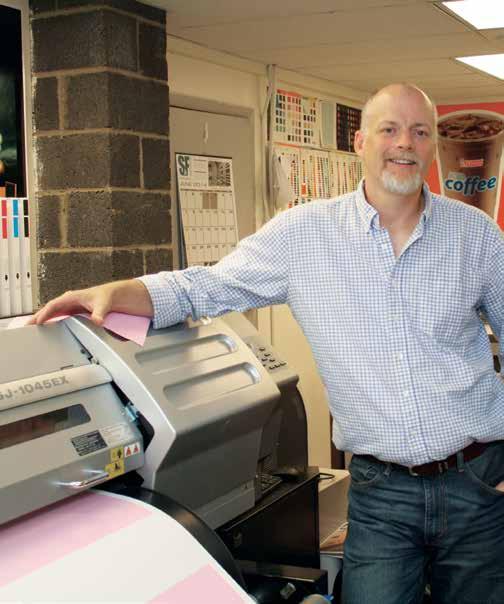
3 minute read
CAPITOL AWNING COVERS THE BIG APPLE
from Raven Issue No. 22
As one of the oldest and largest awning fabrication companies in New York, you’ll find the work of Capitol Awning Company accenting the city’s most iconic venues, including Rockefeller Center, Grand Central Station, Citi Field, Yankee Stadium, U.S. Tennis Center, Sax Fifth Avenue and Tanger Outlet in Deer Park.
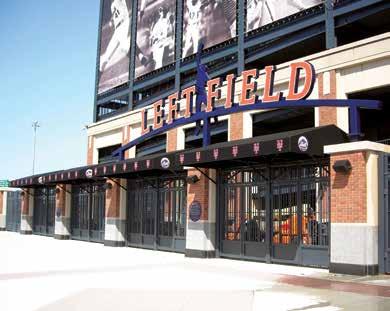
Advertisement
“For just about any major shade structure in the New York area, we probably had a hand in it at one time or another,” said Michael Catalano, grandson of the company’s founder, Fred Catalano, Sr.
The ability to learn new things is one of the reasons for Capitol Awning’s growth and resilience since its founding nearly 70 years ago. It operates from a vertically integrated manufacturing center, office, warehouse and staging area totaling more than 21,000 square feet in Jamaica, Queens. The operation encompasses investments in digital imaging, computer-added design and full-color graphics to support an extensive product offering that includes awnings and shade structures of all kinds, window graphics, custom-printed shade screens, custom umbrellas, retractable awnings, movie sets and shade sails. The company motto is “If you can dream it up, we can build it.”
Capitol Awning’s resources allow it to take on large and complex shade structures, while its longevity in the New York market empowers it to work efficiently within one of the country’s most congested and highly regulated metropolitan regions.
“You have to love traffic to work in and around New York City,” Catalano jokes. “If we have a project in Manhattan, our trucks must leave Jamaica by 6 a.m. to be in Manhattan by 7:30. We load our trucks to be sure that we have every component and every tool because there’s no easy return to the shop.”
In addition to high-visibility projects in the New York area, Capitol Awning serves several national franchises, including a 20-year relationship with Dunkin’ Donuts. Capitol Awning also prides itself on relationships with numerous smaller awning fabricators who depend on it for specialized support in areas such as graphics, heat seaming and fabrication of large frames.
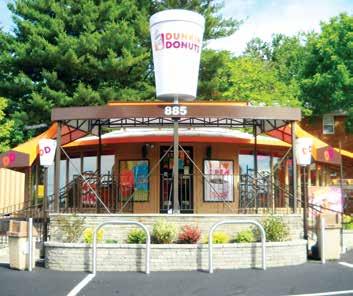
“My grandfather built this company by working with smaller companies,” Catalano said. “We cover a large area, and the smaller shops can help me with clients we’re not able to serve.”
Company founder Fred Catalano, Sr. began work in the awning business by fabricating classic scissors-type awning frames for use throughout New York. During World War II, he worked in the Brooklyn Shipyard, where he honed his design, engineering and fabrication skills. Through a series of acquisitions, the company grew and obtained its name, Capitol, in 1966. The company remains family-owned with Michael and his uncle Phil in key management roles; Michael is in charge of operations and marketing, and Phil leads the sales team.
While growth has been the hallmark of Capitol Awning, the tragic events of 9/11 and the 2008 recession required a rethinking of the company’s approach. It was during this time that Michael moved into his leadership role.
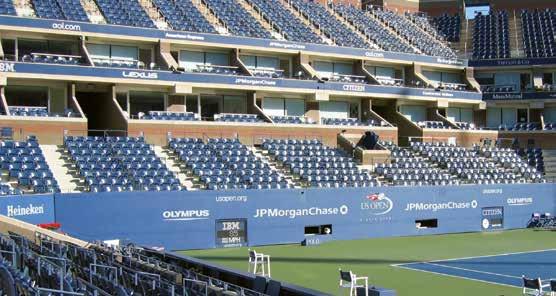
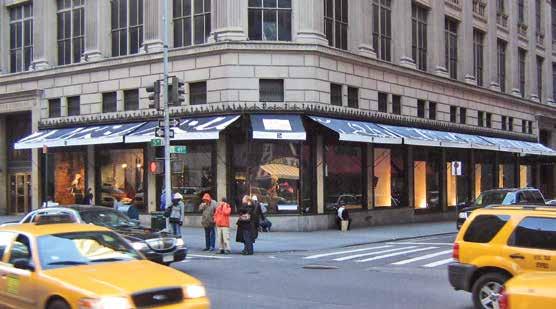
“9/11 really changed everything for us,” Michael said. “Manhattan was basically closed, and it was a really scary time.”
Michael led the company into strategic marketing and a greater diversity of offerings. The company’s website is the hub for a marketing program that targets architects and designers with detailed content. Organic search, Google AdWords, e-newsletter and professional networking have helped Capitol Awning maintain market share.
“Our approach to marketing allows us to track and measure our leads,” he said. “We know where the leads are coming from and we know our best networking contacts.”
Included in Capitol Awning’s network is Ann Marie Logue, account representative with Trivantage, one of the company’s lead suppliers.
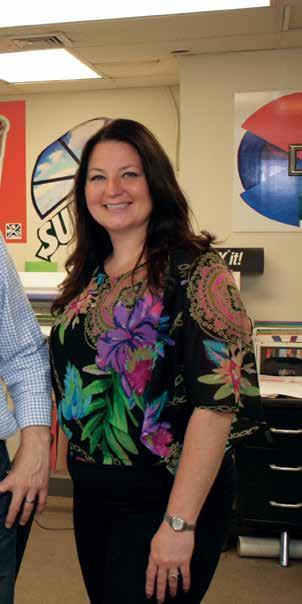
“Michael was skeptical when I was first assigned to his account seven years ago because I was new to the industry,” Logue said. “But, he gave me a couple of challenges, took me under his wing and over the years we’ve formed a partnership. He can count on us to deliver the materials he needs, and I know we can count on Michael when we have a challenging customer project.”
Michael is very much a hands-on manager, walking through the shop 10 to 12 times a day to check on the status of work in progress. He’s also in close contact with sales, and you might even find him in the field helping with large installations.
“I don’t need a door on my office because it never stays closed for long,” Michael said. “In the busy season, our staff might work 65 hours in one week, and it takes real dedication to the job to keep up that pace. When the cards are down, everyone pulls together and rises to the challenge. It’s like a family.”










